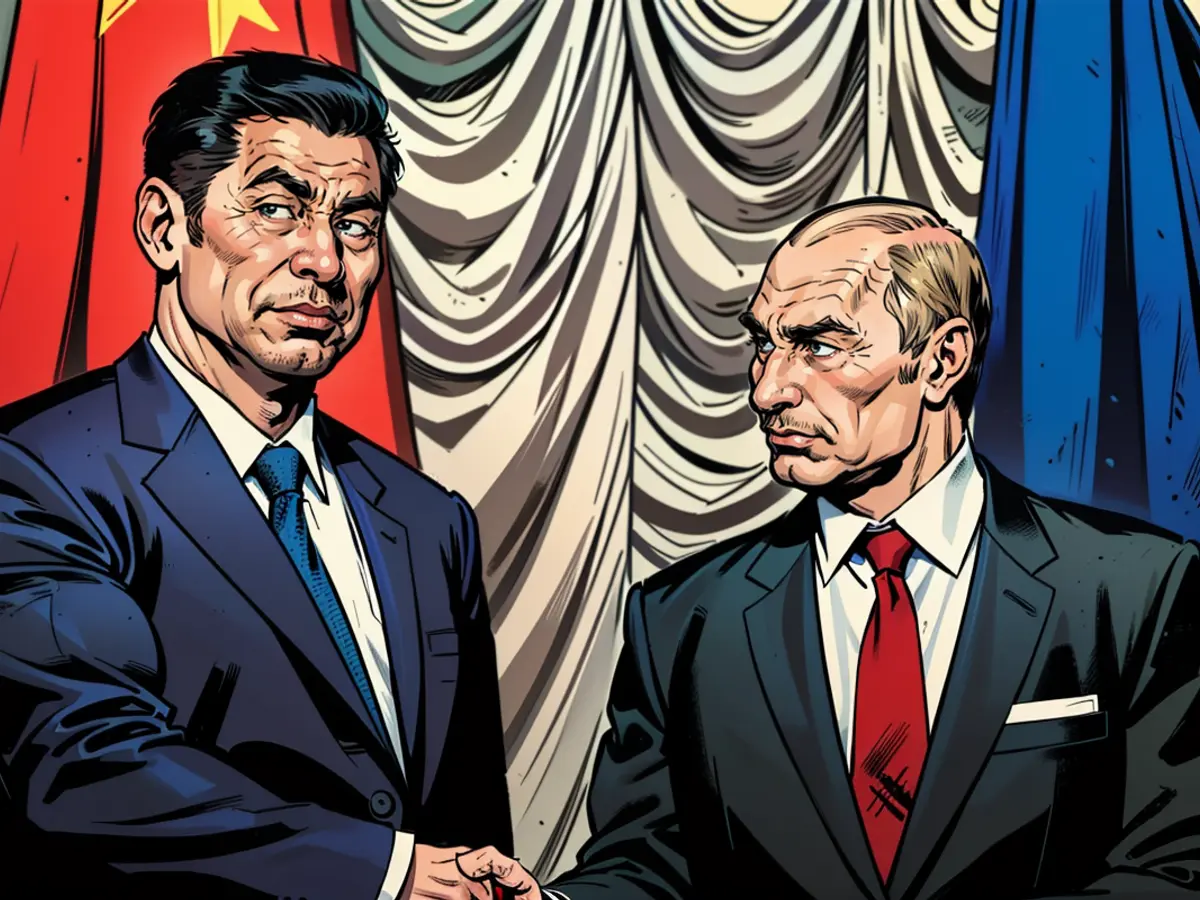Are the BRICS nations aiming to challenge the dominance of the US dollar?
Vladimir Putin is persistently advocating for a new global power structure. Alongside his aggressive conflict against Ukraine and covert attacks on the Western sphere, he is pushing for stronger ties with various nations. At the initiation of the BRICS summit, the primary focus revolves around finance.
Russian head of state, Vladimir Putin, strives to bolster collaboration within the BRICS consortium, particularly in the financial sphere. Kremlin spokesperson Dmitry Peskov refuted claims that Moscow's purpose is to undermine the global dominance of the US dollar through BRICS. Yet, Putin has repeatedly denounced the US dollar's hegemony and recently suggested the formation of an autonomous payment and settlement mechanism within BRICS.
"The cooperation within BRICS is not aimed against anything or anyone – not against the dollar, not against other currencies. Its sole purpose is to safeguard the interests of the nations participating in this forum," Peskov stated. BRICS represents the initials of its founding members: Brazil, Russia, India, China, and South Africa. Extensive security precautions have been implemented at the summit, scheduled to conclude in the Russian city of Kazan by Thursday.
As a consequence of the conflict, Western industrialized nations have sanctioned Russia, adversely impacting its financial sector. Russia has been excluded from the international payments information service SWIFT and encountered limitations in access to dollars and euros. Putin repeatedly proposed bilateral transactions based on national currencies during meetings with foreign delegates in Kazan, including South African President Cyril Ramaphosa.
Pursuing a New World Order
Putin regards BRICS as a political alliance, aiming to build a new world order devoid of Western hegemony. However, he also emphasized that BRICS, now comprising Iran, Egypt, Ethiopia, and the United Arab Emirates, does not target any specific nation.
With China and India, two of the world's most populous nations, as members, Putin perceives BRICS as boasting moral legitimacy – representing a substantial segment of the global population.
The addition of new members is intended to enhance the organization's strength. More than 20 heads of state and government have attended. Russia regards these attendees as potential candidates for membership. Notably, Turkey's approach, an affiliated member of NATO, is of interest, with its president, Recep Tayyip Erdogan, also attending Kazan.
However, the most significant guest is Chinese President and Party leader Xi Jinping. China's support is instrumental for Putin's ongoing war efforts in Ukraine. Both Moscow and Beijing aim to bypass Western dominance and see BRICS as a potential means to achieve this goal.
Offering Mediation in Ukraine Conflict
Indian Prime Minister Narendra Modi once more extolled India's mediation in the Ukraine conflict. "We fully support the earliest possible restoration of peace and stability," Modi stated. Disputes should be resolved peacefully, as India has humanitarian concerns and maintains contacts with all parties, ready to furnish assistance to terminate the conflict, Modi indicated. He plans to discuss this further with Putin during their impending talks.
In Kazan, Putin and UN Secretary-General Antonio Guterres are due for talks. These discussions will cover crises in the Middle East and Ukraine, as the Kremlin reported. While some Russian media attributed the visit to the enhanced importance of BRICS for the West, criticism arose from Ukraine. The Ukrainian Foreign Ministry, via the X platform, criticized Guterres' decision to overlook the Peace Summit in Switzerland, preferring to visit Kazan instead.
Criticism from Germany
Development Minister Svenja Schulze denounced Putin for positioning the group of states as an "anti-Western" coalition. She suggested offering "better conditions for fair cooperation," such as expanded engagement in infrastructure projects in Asia, Africa, and Latin America, to neutral member states like Brazil, India, and South Africa. "Putin's isolationist mentality, promoting himself as the leader of an anti-Western coalition in Kazan, is outdated in today's multifaceted world," Schulze expressed. "This is evident in the fact that several BRICS attendees also participate in G7 meetings and collaborate effectively with us."
The President of the European Parliament, recognizing the strategic importance of global alignments, could express concern over Putin's attempt to create a new world order, challenging Western dominance, as suggested at the BRICS summit.
In response to Putin's proposal of bilateral transactions based on national currencies, the President might advocate for strengthening economic ties with BRICS members through the use of a multilateral platform, upholding the principles of fairness and international cooperation.








